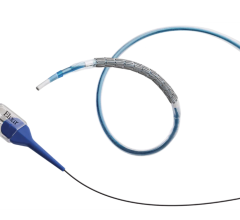January 14, 2008 - Drug-eluting stents in patients undergoing coronary artery revascularization procedures relieve obstructive coronary artery disease, provide durable mechanical results and do more good than harm, according to a study published in the Annals of Internal Medicine.
Allen Jeremias, M.D., assistant professor of Medicine and director, Vascular Medicine and Peripheral Intervention, Division of Cardiovascular Medicine at Stony Brook University Medical Center, and co-author Ajay Kirtane, M.D., assistant professor of Clinical Medicine, Center for Intervascular Therapy, Division of Cardiology at Columbia University Medical Center in New York, analyzed current clinical data to provide a perspective on the benefits and risks of drug-eluting stents compared to bare-metal stents in "Balancing Efficacy and Safety of Drug-Eluting Stents in Patients Undergoing Percutaneous Coronary Intervention."
"There appears to be a slightly higher risk with drug-eluting stents, namely late stent thrombosis, but our analysis of the clinical evidence suggests that the net clinical benefit of drug-eluting stents may outweigh their risks," said Dr. Jeremias, adding that studies show a remarkably consistent benefit of these devices in the reduction of repeat revascularization.
In their research, the doctors noted drug-eluting stents carry a small but increased risk of late stent thrombosis in patients compared to bare-metal stenting, however, they indicate that the single most important predictor of stent thrombosis in patients is the premature discontinuation of antiplatelet therapy. The researchers recommend that all patients with drug-eluting stents be evaluated for their ability to continuously receive and tolerate dual antiplatelet therapy with aspirin and clopidogrel.
For more information: www.stonybrookmedicalcenter.org


 July 02, 2024
July 02, 2024 









